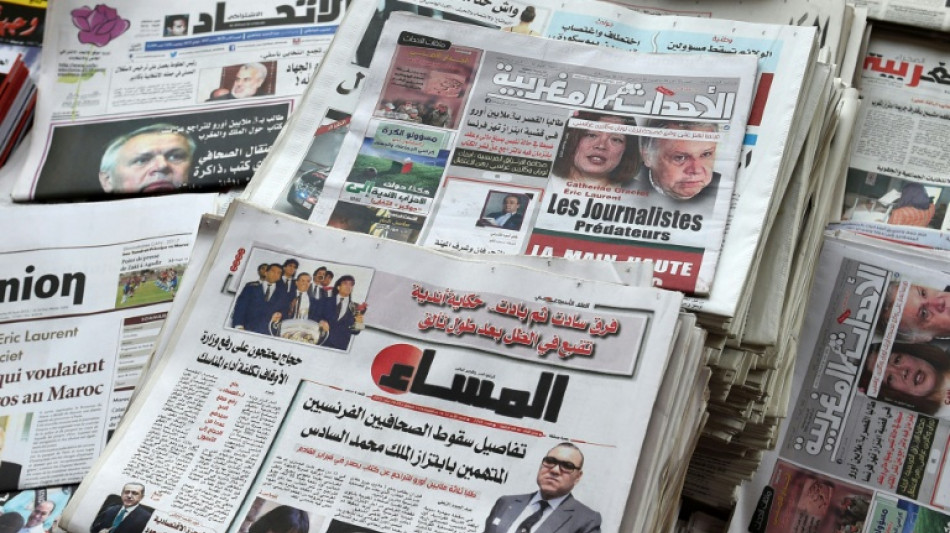
-
 Toulouse handed two-point deduction for salary cap breach
Toulouse handed two-point deduction for salary cap breach
-
Son arrested for murder of movie director Rob Reiner and wife
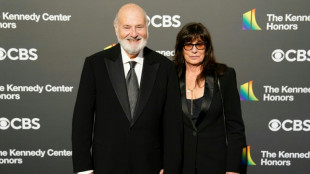
-
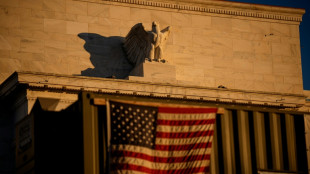 Stock market optimism returns after tech selloff but Wall Street wobbles
Stock market optimism returns after tech selloff but Wall Street wobbles
-
Clarke warns Scotland fans over sky-high World Cup prices

-
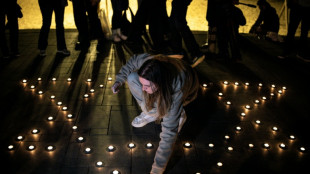 In Israel, Sydney attack casts shadow over Hanukkah
In Israel, Sydney attack casts shadow over Hanukkah
-
Son arrested after Rob Reiner and wife found dead: US media
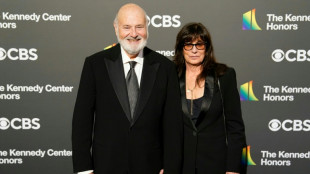
-
 Athletes to stay in pop-up cabins in the woods at Winter Olympics
Athletes to stay in pop-up cabins in the woods at Winter Olympics
-
England seek their own Bradman in bid for historic Ashes comeback
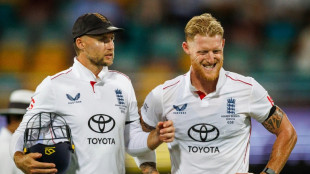
-
 Decades after Bosman, football's transfer war rages on
Decades after Bosman, football's transfer war rages on
-
Ukraine hails 'real progress' in Zelensky's talks with US envoys
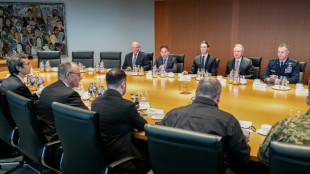
-
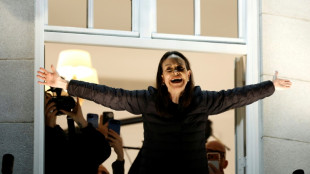 Nobel winner Machado suffered vertebra fracture leaving Venezuela
Nobel winner Machado suffered vertebra fracture leaving Venezuela
-
Stock market optimism returns after tech sell-off
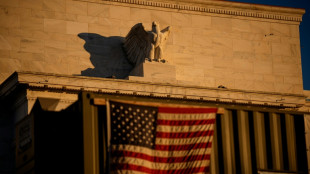
-
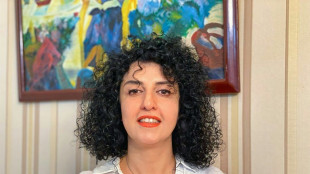 Iran Nobel winner unwell after 'violent' arrest: supporters
Iran Nobel winner unwell after 'violent' arrest: supporters
-
Police suspect murder in deaths of Hollywood giant Rob Reiner and wife
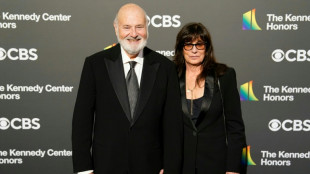
-
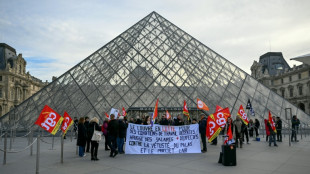 'Angry' Louvre workers' strike shuts out thousands of tourists
'Angry' Louvre workers' strike shuts out thousands of tourists
-
EU faces key summit on using Russian assets for Ukraine
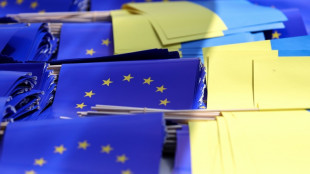
-
 Maresca committed to Chelsea despite outburst
Maresca committed to Chelsea despite outburst
-
Trapped, starving and afraid in besieged Sudan city
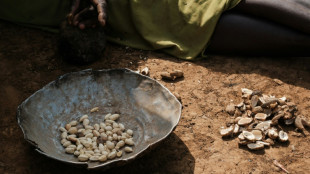
-
 Showdown looms as EU-Mercosur deal nears finish line
Showdown looms as EU-Mercosur deal nears finish line
-
Messi mania peaks in India's pollution-hit capital

-
 Wales captains Morgan and Lake sign for Gloucester
Wales captains Morgan and Lake sign for Gloucester
-
Serbian minister indicted over Kushner-linked hotel plan
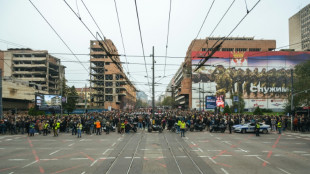
-
 Eurovision 2026 will feature 35 countries: organisers
Eurovision 2026 will feature 35 countries: organisers
-
Cambodia says Thailand bombs province home to Angkor temples

-
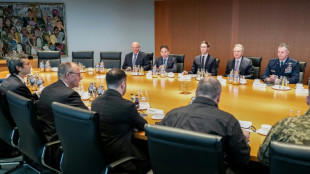 US-Ukrainian talks resume in Berlin with territorial stakes unresolved
US-Ukrainian talks resume in Berlin with territorial stakes unresolved
-
Small firms join charge to boost Europe's weapon supplies

-
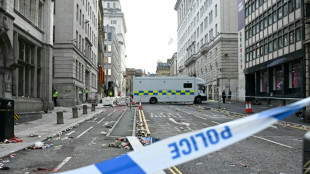 Driver behind Liverpool football parade 'horror' warned of long jail term
Driver behind Liverpool football parade 'horror' warned of long jail term
-
German shipyard, rescued by the state, gets mega deal

-
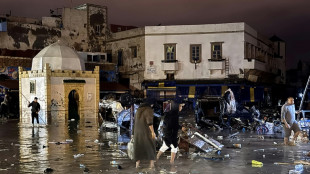 Flash flood kills dozens in Morocco town
Flash flood kills dozens in Morocco town
-
'We are angry': Louvre Museum closed as workers strike
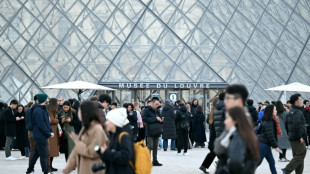
-
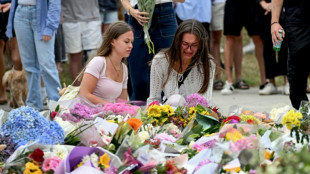 Australia to toughen gun laws as it mourns deadly Bondi attack
Australia to toughen gun laws as it mourns deadly Bondi attack
-
Stocks diverge ahead of central bank calls, US data
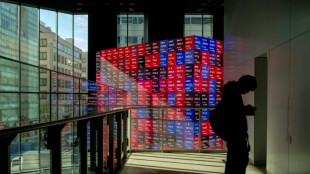
-
 Wales captain Morgan to join Gloucester
Wales captain Morgan to join Gloucester
-
UK pop star Cliff Richard reveals prostate cancer treatment
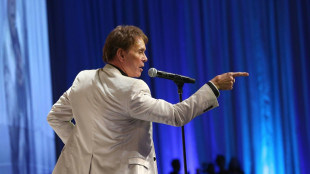
-
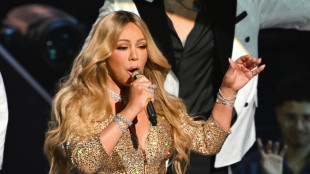 Mariah Carey to headline Winter Olympics opening ceremony
Mariah Carey to headline Winter Olympics opening ceremony
-
Indonesia to revoke 22 forestry permits after deadly floods

-
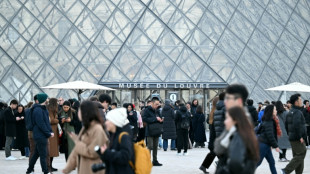 Louvre Museum closed as workers strike
Louvre Museum closed as workers strike
-
Spain fines Airbnb 64 mn euros for posting banned properties

-
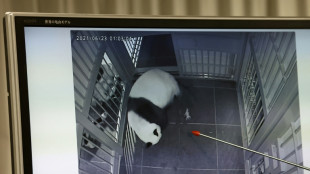 Japan's only two pandas to be sent back to China
Japan's only two pandas to be sent back to China
-
Zelensky, US envoys to push on with Ukraine talks in Berlin
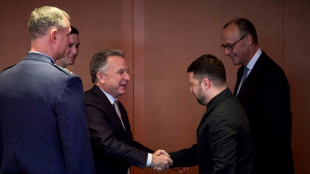
-
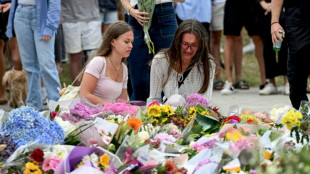 Australia to toughen gun laws after deadly Bondi shootings
Australia to toughen gun laws after deadly Bondi shootings
-
Lyon poised to bounce back after surprise Brisbane omission
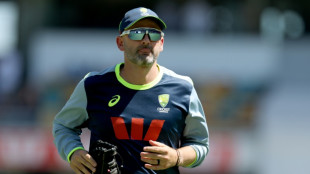
-
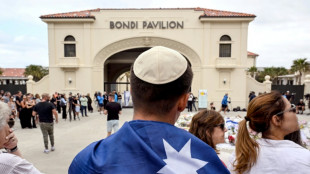 Australia defends record on antisemitism after Bondi Beach attack
Australia defends record on antisemitism after Bondi Beach attack
-
US police probe deaths of director Rob Reiner, wife as 'apparent homicide'
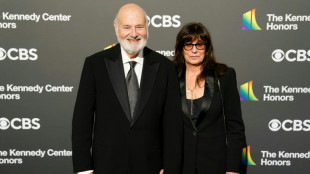
-
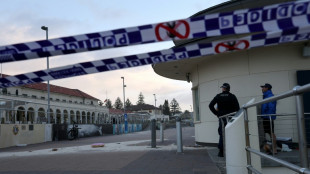 'Terrified' Sydney man misidentified as Bondi shooter
'Terrified' Sydney man misidentified as Bondi shooter
-
Cambodia says Thai air strikes hit home province of heritage temples

-
 EU-Mercosur trade deal faces bumpy ride to finish line
EU-Mercosur trade deal faces bumpy ride to finish line
-
Inside the mind of Tolkien illustrator John Howe
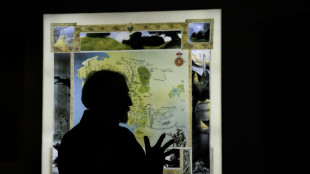
-
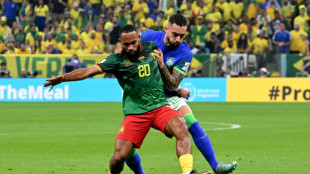 Mbeumo faces double Cameroon challenge at AFCON
Mbeumo faces double Cameroon challenge at AFCON
-
Tongue replaces Atkinson in only England change for third Ashes Test


French writers go on trial in Moroccan king blackmail case
Two French journalists went on trial Monday in France on charges of trying to blackmail the king of Morocco over allegedly demanding money to hush purportedly damaging revelations about him.
Eric Laurent, 75, and Catherine Graciet, 48, are accused of demanding two million euros ($2 million) in 2015 in exchange for halting the publication of a book about the Moroccan royal family.
Both writers, who face up to five years in jail and 75,000 euros in fines if found guilty, have denied any wrongdoing and say it was a lawyer representing the Moroccan royal family who first offered them the money.
Laurent in court on Monday admitted to an "ethical error", a "disaster" in having accepted to "let myself be caught up in this affair", but denied having committed "any criminal offence".
Co-author Graciet said that the Moroccan envoy "seduced me with his financial offer, I took the plunge and I regret it".
The writers had already published a highly critical book on King Mohammed VI in 2012 titled "The Predator King", which was banned in Morocco.
Ahead of the planned publication of a second volume, Laurent in August 2015 met a lawyer representing the monarchy at the bar of a Parisian hotel, and warned him it contained potentially embarrassing revelations for the monarchy.
Morocco accuses the journalist of offering to halt the book's publication, originally due in early 2016, in exchange for three million euros. He allegedly later reduced that amount to two million following negotiations.
But Laurent says the lawyer representing Morocco was the one who suggested a financial deal to prevent the information from getting out.
"He's the one who suggests it," he said, recounting the scene in court.
- Taped conversations -
After the first meeting, Morocco filed a complaint and an investigation was opened in Paris.
This time under police surveillance, the lawyer and Laurent then met again at the same hotel later that same month.
They met a third time in late August 2015 at another hotel, where they were joined by Graciet and both writers purportedly signed a deal to receive two million euros in exchange for not bringing out the book.
They were arrested afterwards in the possession of two envelopes each containing 40,000 euros in cash, which Morocco has claimed was the first instalment of the agreed larger sum.
During the investigation, both writers admitted to having agreed to a deal to halt the book's publication over geopolitical concerns, but denied the charge of blackmail.
Laurent's lawyer, Serge Portelli, has said both journalists fell into a "trap set up by the Moroccan services".
Graciet's lawyer, Eric Moutet, said she had "not taken part in any blackmail", and considered herself to have been "the victim of a trap".
After their arrest, it emerged that the Moroccan king's representative had secretly made recordings of all meetings, and passed them on to investigators.
"This recording is a fake," Laurent said on Monday, when confronted with a transcript of certain passages in which he appears to actively suggest a sum of money.
An expert assessment previously found that the copies of the recordings handed over to investigators seemed to have undergone some kind of "post-treatment, impossible to define".
But a court in 2017 rejected the defence's argument that the tapes were inadmissible.
L.Durand--AMWN